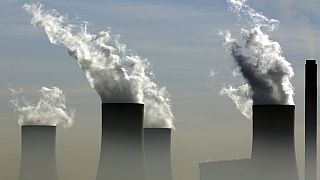coal phase-out
With just a day for the EU's embargo on Russian coal to take effect, many European countries have turned to South Africa for imports as they scramble to secure their energy supplies ahead of the winter season.
In the first five months of this year, European countries imported more than 3.24 million tons of coal from South Africa, up over 40 percent from the total of 2021. South Africa has the largest coal resources in Africa.
Most of the thermal coal mined in South Africa is used for domestic electricity consumption, and only a small part is exported overseas, as the country relies on coal to generate electricity.
Developed European countries have long been able to consume more environmentally friendly energy sources such as natural gas because of their economic advantages. Less developed African countries are relying more on local sources, as generating electricity with coal costs is lower.
However, in dealing with climate change and reducing carbon emissions, rich European countries, regardless of the practical problems of developing or less developed countries, frequently put pressure on African countries and imposed high "carbon tariffs" on African export products, hindering the economic development of African countries.
David Monyae, the director of the Center for Africa-China Studies at the University of Johannesburg says the EU sanctions against Russia are "self-defeating" as European countries are now seeking energy security by turning to fossil fuels, in defiance of global climate action.
Monyae says the move is 'a classic case of double standards' where European countries turn directly in the face of their own interests and adopt energy policies that clearly affect the desire for environmental protection.











Go to video
EU foreign ministers discuss Ukraine, Syria and EU-African relations in Luxembourg.
Go to video
Major nations agree on first global tax on shipping’s greenhouse gas emissions
Go to video
France: Le Pen declares 'nuclear bomb' dropped after office ban sentencing
01:41
Ocean carbon solutions face growth and environmental challenges
Go to video
EU acknowledges Rwanda's role in Congo crisis, but action delayed
04:36
EU Pledges €4.7 Billion Investment in South Africa at Landmark Summit